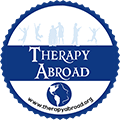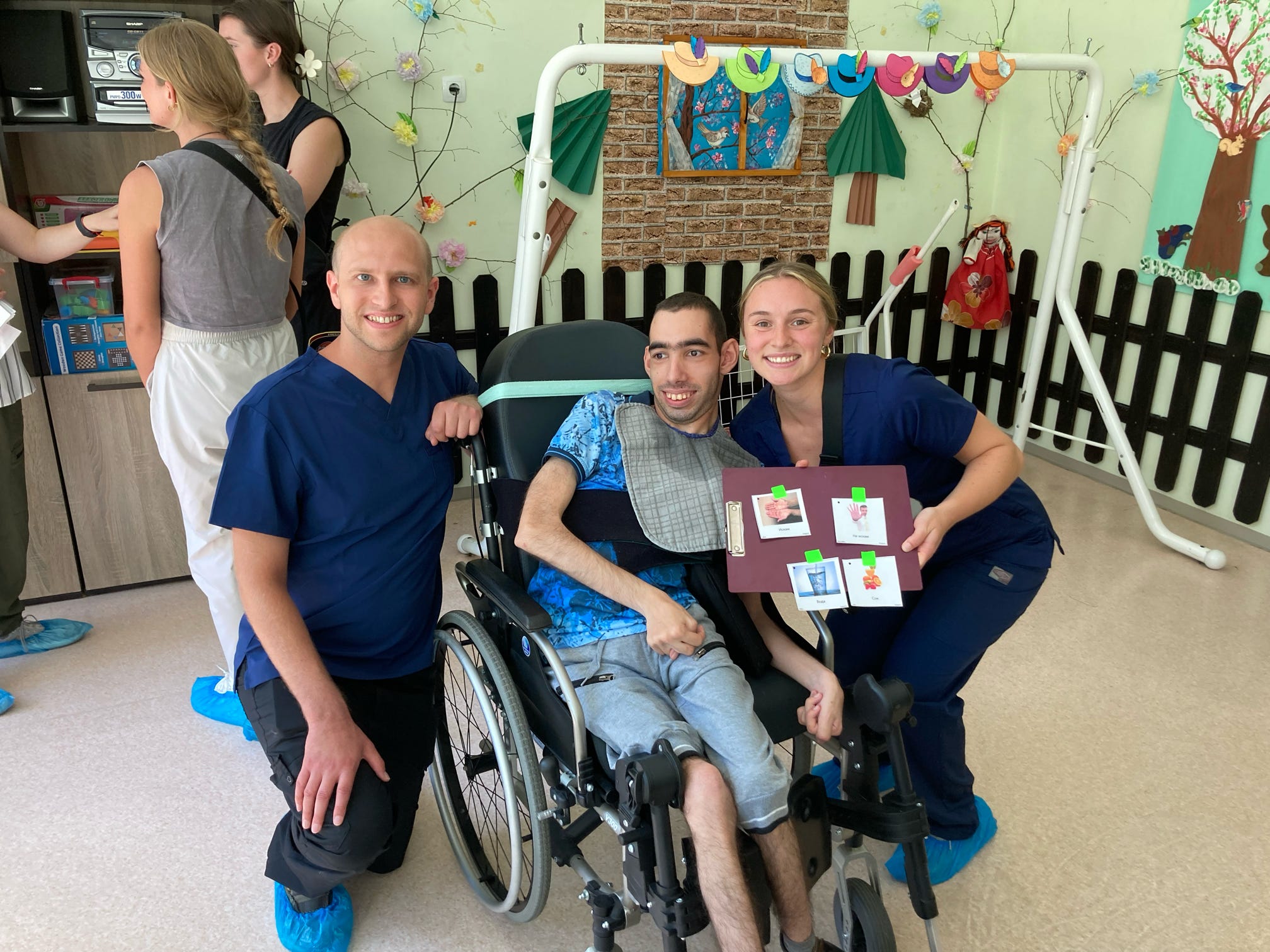Do you want to become a speech-language pathology professional but are unsure what your career trajectory looks like? Apart from the high demand for jobs, what makes this career so fulfilling is the ability to change people’s lives. As a speech therapist, you can empower patients by helping them communicate more effectively, thus boosting their self-confidence.
If this idea appeals to you, but you still have reservations, the best way to decide is to learn more about careers for speech-language pathologists. This way, you can determine whether it’s the right path for you. In this guide, you’ll learn more about speech-language pathologist jobs to gain insight into the profession.

What Is Speech-Language Pathology
Speech-language pathology (SLP) is the scientific study of diagnosing, assessing, and treating speech, language, communication, and swallowing disorders. Professionals who specialize in this field are called speech-language pathologists or speech therapists. According to the BLS, the 2021 median speech-language pathologist salary was $79,060 annually.
If you’re wondering about how to become a speech-language pathologist, here’s the general overview:
- Pursue a bachelor’s degree in a related field
- Obtain a master’s degree from one of the accredited speech-language pathologist graduate programs
- Complete a clinical fellowship
- Pass the Praxis Examination
- Apply for ASHA certification and state licensure
Where Do Speech-Language Pathologists Work?
One of the advantages of becoming a speech-language pathologist is the ability to work in various settings. This gives you flexibility and allows you to explore different areas throughout your career. Here are just some of the places you can work in to provide you with a better idea:
Educational Facilities
Unlike other healthcare professionals that usually only concentrate in medical settings, SLPs are highly involved in the educational space. In fact, 56% of SLPs work in an academic environment, with 53% of them in schools and the other 3% in colleges or universities.
SLPs in this setting work with students, parents, teachers, counselors, and other professionals to help diagnose and treat communication disorders. Their tasks may include the following:
- Screening and diagnosing speech problems
- Working with children with disabilities
- Writing Individualized Educational Plans (IEPs)
- Collaborating with teachers to create lesson plans
- Supervising clinical fellowships and practicum
Hospitals
Next, SLPs may be employed in hospitals, where they provide a range of inpatient and outpatient services. Generally, you get to work with patients of all ages unless you choose a specialized hospital, such as a children’s or military hospital. In such cases, you’ll focus more on treating a specific patient population.
Regardless, here are some things you may do as an SLP in a hospital setting:
- Diagnosing, evaluating, and treating speech, language, and swallowing disorders
- Creating and performing treatment plans
- Helping traumatic brain injury (TBI) or stroke survivors through recovery
- Educating patients and families on communication disorders and treatments
Residential and Nonresidential Health Care Facilities
Besides hospitals, residential and nonresidential healthcare facilities are also common work areas for SLPs.
Residential facilities include nursing homes and assisted living communities, where SLPs help the elderly recover from illnesses or treat speech difficulties. On the other hand, nonresidential healthcare facilities refer to outpatient settings like doctor’s offices and speech clinics.
Generally, SLPs who work in these facilities perform similar services as those who work in hospitals. If ever, there may just be some nuances based on the patient’s specific needs. For example, you usually need to provide additional care and support in residential facilities.
Private Practice
Finally, SLPs can also work in private practice. This option grants you the most freedom since it gives you control over your schedule, target patients, and types of cases handled. It’s good to consider if you’re passionate about a specific area in SLP or know exactly what you want to do in the field.
In this setting, the job scope ultimately depends on you and how you set up your private practice. However, one key difference is you’ll also need to handle marketing and administrative tasks like billing and insurance—much like running a regular business.
Speech Pathologist Job Specialization
Given the broad scope of speech-language pathology, you can specialize in a particular field for more focus. While this isn’t required to practice SLP, it helps you pursue a more specific career path. Examples of specializations include:
- Speech Disorders
SLPs with this specialization help patients with difficulty producing sounds and speaking fluently. They treat various speech disorders like stuttering, apraxia, and articulation disorders.
- Language Disorders
SLPs specializing in language disorders treat patients who struggle to understand language or communicate clearly with others. This usually results from aphasia, which affects speech comprehension and the ability to write due to damage to the brain.
- Social Communication
SLPs here assist patients with difficulty communicating socially, whether verbally or non-verbally. They help patients learn how to take turns in speaking, follow social cues, and understand proper speech behavior in different settings.
- Cognitive-Communication Disorders
SLPs with this specialization work with patients with disorders that affect their memory, problem-solving, and reasoning. Often, these patients have experienced a stroke or traumatic brain injury (TBI).
- Speech Pathology Assistant
One of the alternate careers for speech-language pathologists is to become a speech pathology assistant, which doesn’t require enrolling in a speech-language pathologist masters program. While you can’t practice independently as an assistant, you can work with certified SLPs.
Enroll in Speech-Language Pathology Programs Abroad to Discern Your Career
SLP is one of the best careers you can pursue, given its positive outlook and rewarding nature. If you’re still discerning your choice, the best way to decide is to expose yourself to a real-world setting through speech-language pathologist programs. Here at Therapy Abroad, we offer SLP programs abroad to immerse you into the field and help you gain hands-on experience in a different country. For more information, call us today at 949-844-6366.


 Share
Share
 Tweet
Tweet
 LinkedIn
LinkedIn
 Pin
Pin
 Email
Email







